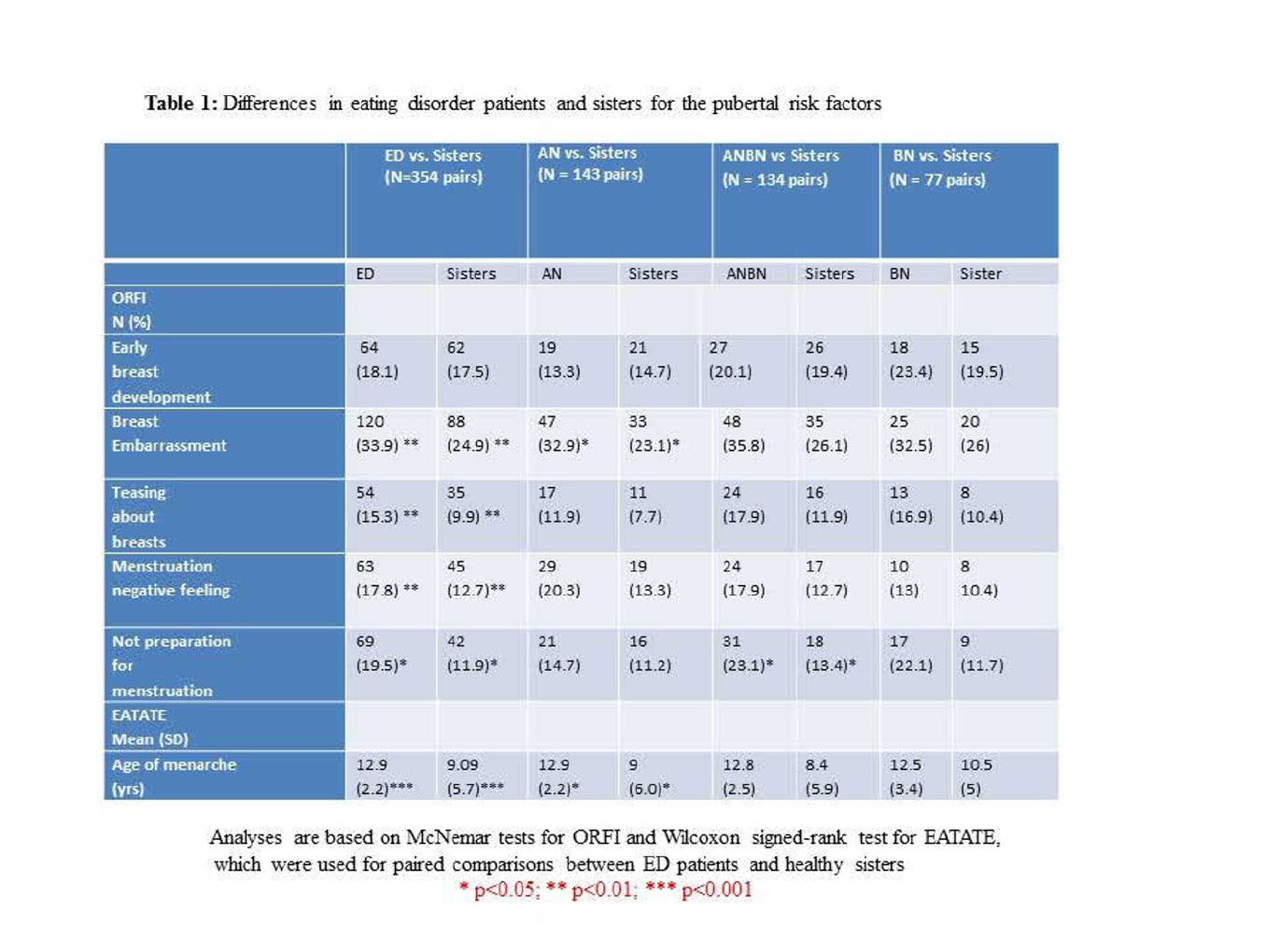No CrossRef data available.
Article contents
The Role of Personality and Pubertal Development in Eating Disorders: a European Discordant Sister-pair Study.
Published online by Cambridge University Press: 15 April 2020
Abstract
Puberty has been found to be a major risk period for the onset of eating disorders (EDs). The experience of puberty can, however, be very different depending on the adolescent’s personality. It is currently unknown how the interplay between personality and experiences of pubertal development are related to subsequent EDs.
To investigate the timing of puberty and attitudes towards puberty in ED patients when compared to their healthy sisters, and to assess the relationship between pubertal risk factors, ED symptoms and personality.
The sample consisted of 354 discordant sister-pairs. Pubertal risk factors were assessed through the Oxford Risk Factor Interview (ORFI) and the EATATE-1. ED symptoms and personality traits were also assessed.
ED patients displayed a later age of menarche, and reported feeling less prepared and more distressed towards pubertal changes than their healthy sisters (see Table 1). While only a few pubertal risk factors were related to ED symptoms, significantly higher Harm Avoidance and Childhood Obsessive-Compulsive traits (both p<0.05) and lower Self-Directedness (p<0.01) scores were related to negative attitudes toward puberty.
Later age of menarche and negative attitudes towards puberty act as important risk factors for EDs. The assessment of personality provides important insights into which girls struggle with pubertal development and could therefore be at increased risk for later EDs.

- Type
- Article: 0193
- Information
- European Psychiatry , Volume 30 , Issue S1: Abstracts of the 23rd European Congress of Psychiatry , March 2015 , pp. 1
- Copyright
- Copyright © European Psychiatric Association 2015



Comments
No Comments have been published for this article.